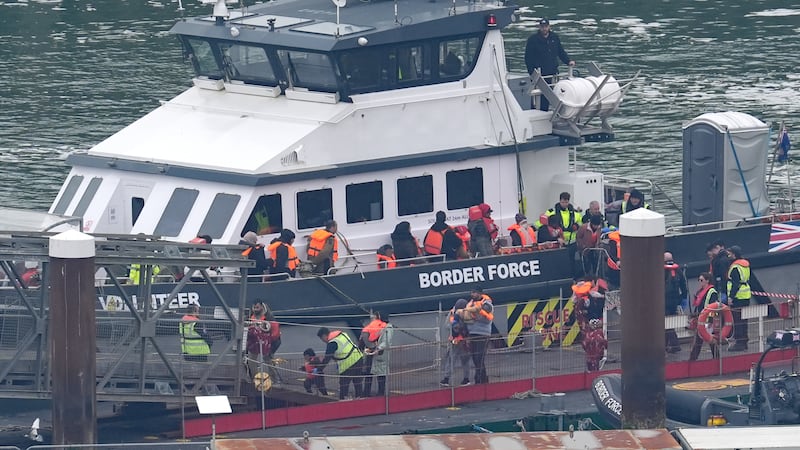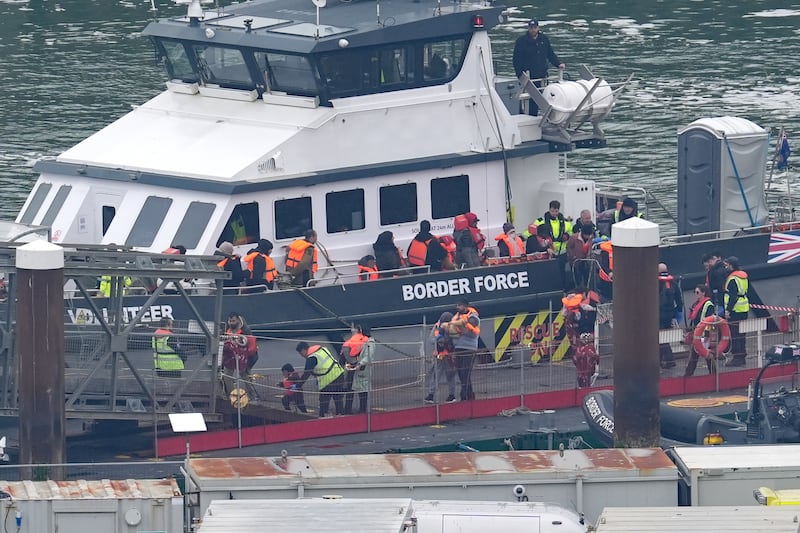More than 2,000 migrants have arrived in the UK after crossing the Channel since the Government’s Safety of Rwanda (Asylum and Immigration) Act became law.
The figures come as Channel crossings continued after a steady stream of arrivals over the bank holiday weekend.
Since the legislation aimed at getting deportation flights to Rwanda off the ground received Royal Assent on April 25, government officials have recorded 2,007 migrants arriving in the UK in 40 boats.

This includes the 396 people the Home Office said made the journey in eight boats from Saturday to Monday, taking the provisional total for the year so far to 8,674.
This is up 35% on this time last year, when 6,415 Channel crossings were recorded and a 14% rise on the same point in 2022 (7,581), PA news agency analysis of the figures shows.
Children were among those pictured being brought ashore in Dover, Kent, on Tuesday, amid calm conditions at sea.
Last week charity Asylum Aid threatened legal action over the Government’s Rwanda plan while a High Court challenge over the legislation which has been brought by the FDA trade union, representing senior civil servants, is due to be considered during a hearing next month.
A Downing Street spokeswoman told reporters there was “no one silver bullet” to tackling migrant crossings, adding: “But fundamentally we do need the Rwanda partnership up and running to change the status quo.”
Earlier the Prime Minister’s official spokesman insisted the UK was “absolutely” getting value for money from its multimillion-pound deals with France in a bid to curb crossings.
The French authorities were facing “increasing challenges and violence as the people smuggling gangs look for new routes to evade the authorities”, he added.
Other figures now being published on a daily basis by the Home Office suggest 1,048 migrants have been prevented from arriving in the UK after attempting to make the journey from France since April 29.

The Home Office said data on preventions – made public for the first time over the weekend – are “estimates” and prone to “measurement error”.
The figures include people who are prevented from leaving France or those who return to the country. But it is not clear whether the numbers include repeat attempts by migrants to cross the Channel. The department also stressed numbers on arrivals and preventions are “not directly comparable”.
“Data on preventions are estimates based on an operational snapshot collected by French authorities, which at the time of publication have not been verified (and are likely therefore to be subject to revision). In addition, and in contrast to measuring arrivals in the UK, prevention activity is inherently likely to be subject to a relatively high degree of measurement error,” the Home Office said.
A department spokesman said: “The unacceptable number of people who continue to cross the Channel demonstrates exactly why we must get flights to Rwanda off the ground as soon as possible.
“We continue to work closely with French police who are facing increasing violence and disruption on their beaches as they work tirelessly to prevent these dangerous, illegal and unnecessary journeys. Last year they stopped 26,000 people from reaching our shores.
“We remain committed to building on the successes that saw arrivals drop by more than a third last year, including tougher legislation and agreements with international partners, in order to save lives and stop the boats.”








